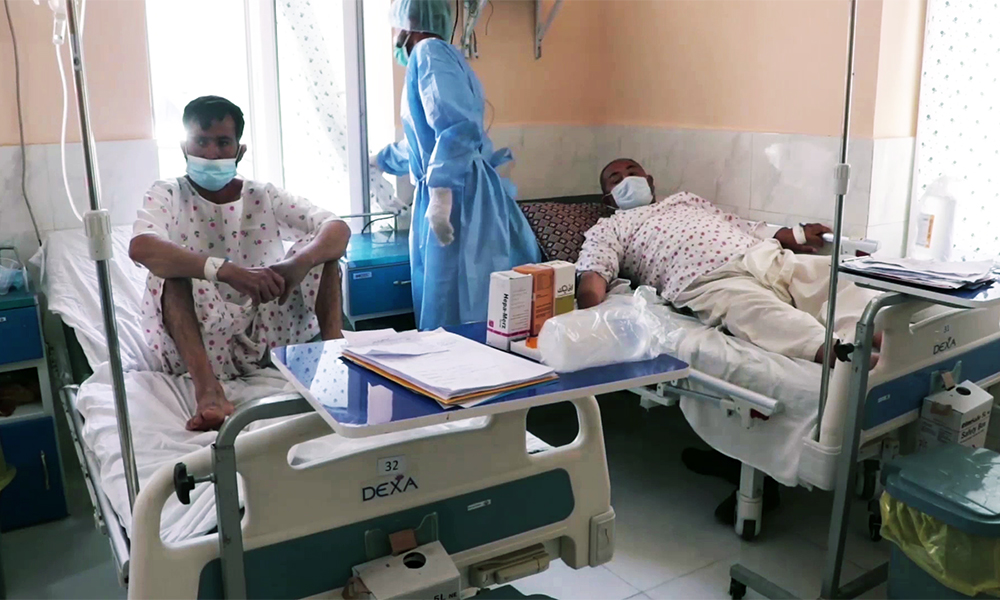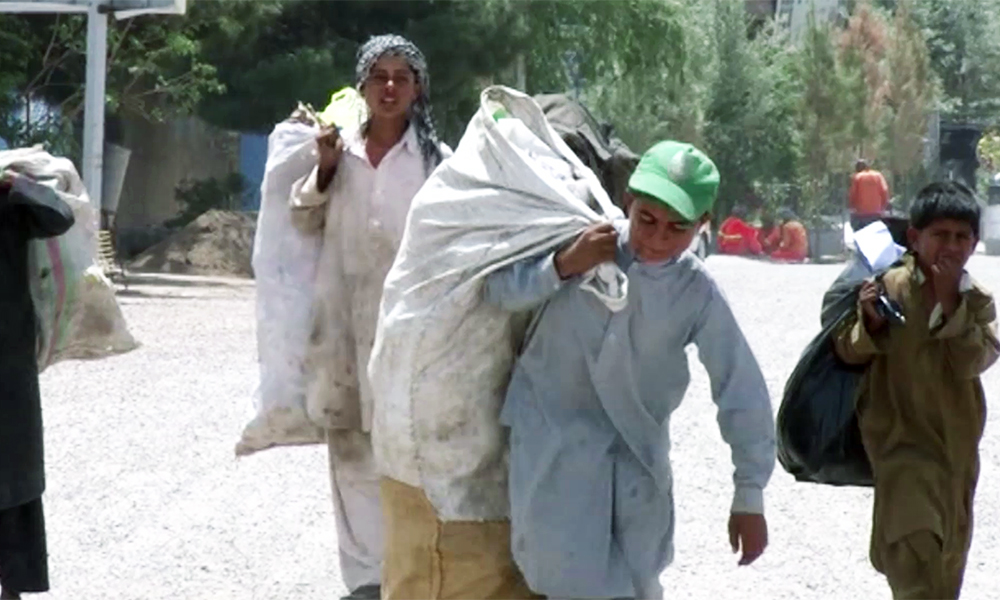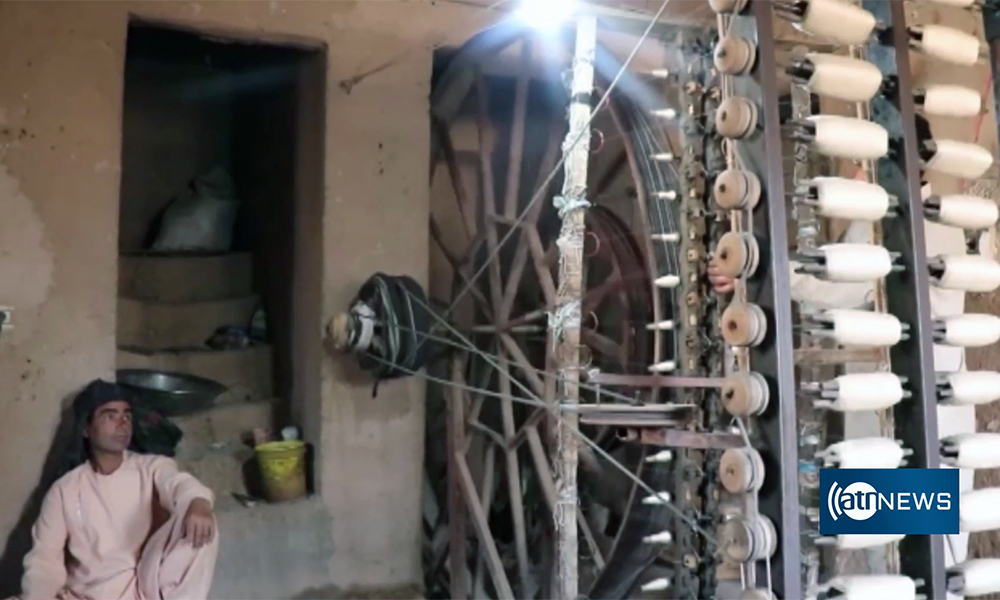Herat
U.S. Service Member Killed in Small Arms Fire

A U.S. Service member has been killed in Afghanistan in “enemy small arms fire,” the NATO’s Resolute Support (RS) mission confirmed in a statement.
“In accordance with U.S. Department of Defense policy, the name of the service member killed in action is being withheld until 24 hours after notification of next of kin is complete. We will share additional information as appropriate,” the statement said.
According to the statement, the incident is under investigation.
This is the second U.S. soldier killed in action in Afghanistan this year.

Health
Herat records 36 Congo Fever cases in past two months

Doctors in Herat province say that they have registered 36 cases of Crimean–Congo hemorrhagic fever in the last two months, with five fatalities.
Mohammad Asif Kabir, Deputy Public Health of Herat, says the number of cases increased this year and that authorities were particularly concerned about the spread of the disease, especially over Eid-ul-Adha.
Doctors in the infectious disease unit of the Herat provincial hospital have advised people to take the necessary precautions when slaughtering livestock.
Congo Fever is a viral haemorrhagic fever usually transmitted by ticks. It can also be contracted through contact with contaminated animal tissues during and immediately after slaughtering of animals.
The US Center for Disease Control recommends people wear gloves and other protective clothing when slaughtering animals. Individuals should also avoid contact with the blood and body fluids of livestock or humans who show symptoms of infection. It is also important for healthcare workers to use proper infection control precautions to prevent occupational exposure.
Herat
300 street children in Herat included in vocational programs during this year: officials

The Department of Labor and Social Affairs in Herat says it rounds up more than 2,000 street children every year and includes them in technical and vocational training programs.
According to the department officials, about 300 of these children were included into technical and vocational programs in the first few months of this year.
“During this year, we surveyed about 500 street children, 300 of them were included in technical and vocational programs,” said Abdullah Suri, deputy head of the Labor and Social Affairs Department in Herat.
Meanwhile, a charity foundation named “Atefi” in Herat province has recently provided the opportunity of technical and vocational training programs to 100 orphans and poor children who will be taught tailoring skills, how to repair phones and other professions in the next six months.
The foundation’s authorities say their goal is to create job opportunities for orphaned children.
During this year, 200 of these children have been covered by technical and vocational programs, the foundation’s officials said.
“One hundred orphaned and needy young children from different areas of Herat city were surveyed and today, Inshallah, their educational workshop, which includes sewing, phone repairing and embroidering bags, will be inaugurated by the elders of Islamic Emirate,” said Abdul Zahir Irshad, the foundation’s head.
Experts however believe that in the current situation there is a need to provide more educational opportunities for these children and the government is obliged to take care of these children along with their families with the cooperation of the helping institutions.
Business
Over 3,600 boxes of silkworms distributed to Herat farmers this year

Herat Directorate of Agriculture and Livestock says more than 3,500 boxes of silkworms have been distributed to farmers this year in Zinda Jan, Injil, Guzara and Pashtun Zarghun districts of the province.
This directorate has said that 80 percent of silk work is done in Zinda Jan district.
“We were able to grow about 3,600 boxes with the help of institutions, about 80 percent of which we have grown in Zinda Jan district,” said Khalil Ahmad, general director of Herat agriculture directorate.
“About 20 percent of silkworms have been grown in Injil, Guzara and Pashtun Zarghun districts, which has had good results and the financial status of the farmers has improved.”
The local officials said most work in the silk industry is done by women.
“Almost 60 percent of the silk industry is done by women,” said Ahmad Shah Qawami, head of the silk workers’ union for Zinda Jan district.
This year, the families who are engaged in raising silkworms hope to have good production, now that the silk season is over and many are working to separate the silk thread.
However, the farmers are not satisfied with this year’s market conditions.
“The silk market is weak this year, it was good last year, it was very advanced,” said a silk worker.
The silk industry in Herat has a history dating back 600 years, and many families have preserved this ancient profession.
Silkworms usually feed on the leaves of mulberry trees, which grow in these regions. The industry also provides a livelihood to hundreds of men and women in the area.
-

 Latest News3 days ago
Latest News3 days agoRashid Khan named AWCC’s brand ambassador
-

 Regional4 days ago
Regional4 days agoIranian president lands in Pakistan for three-day visit to mend ties
-

 Sport4 days ago
Sport4 days agoKolkata beat Bengaluru by one run in IPL as Kohli fumes at dismissal
-

 Sport4 days ago
Sport4 days agoACL: Aino Mina 3-0 Istiqlal Kabul; Attack Energy 3-0 Khadim
-

 Climate Change4 days ago
Climate Change4 days agoRescuers race to reach those trapped by floods in China’s Guangdong
-

 Business5 days ago
Business5 days agoAfghanistan, Kazakhstan to hold joint expo in Kabul
-

 World3 days ago
World3 days agoMalaysian navy helicopters collide in mid-air, 10 killed
-

 Sport3 days ago
Sport3 days agoJaiswal ton powers Rajasthan to big IPL win




























